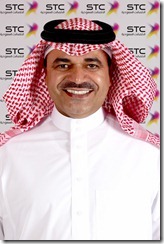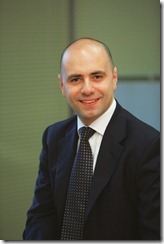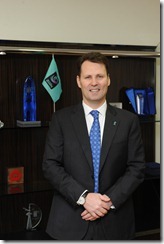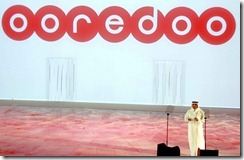Over the past 18 months Saudi Telecom Group (STC) has been plagued by a crisis in management with senior figures having departed the telco suddenly. Given it is based in the largest economy in the region the ripples of its disquiet can be felt across the Middle East and beyond as the telco grapples to correct its course
Saud Al Daweesh’s resignation as STC Group CEO in April 2012 marked the start of numerous senior management resignations at the telco
STC Group posted a sharp fall in its fourth-quarter profits as the company reported it was negatively impacted by write-downs of overseas subsidiaries and a one-off tax charge.
The telco posted a net profit for the quarter that was down by 80 per cent to SAR468 million (US$124 million), compared to SAR2.28 billion (US$608 million) a year ago.
STC also took one-time write downs of SAR641 million on its investments in South Africa’s Cell C and India’s Aircel. The telco was hit by a SAR544 million charge for deferred taxes at Aircel.
Excluding the write-downs, profits would have risen by 10 per cent.
For the full year, the telco reported revenues rose by 6.7 per cent to SAR59.4 billion, while net profits fell by 4.9 per cent to SAR7.35 billion.
So while STC’s Q4 financial performance was mitigated by steady developments in the earlier parts of the year, the telco is clearly not operating at its optimum and it appears morale and confidence at all levels of employee is at a relatively low ebb.
At the beginning of February it was announced that the head of STC’s domestic operations had resigned. At the time, Jameel Abdullah Al Molhem became one in a string of senior resignations from the telco following the departure of the then STC Group CEO Saud Al Daweesh last April.
In a statement at the time of his departure, Al Daweesh said, "I made this decision for personal reasons and I am fully confident that the organisation will continue its journey of success with highly skilled and enthusiastic people in the company".
It was reported by local media that he had offered his resignation in January 2012, but the board of directors only accepted it in April that year.
Al Daweesh’s successor, Khaled Al Ghoneim was appointed in June 2012 and less than nine months into the job, also resigned citing “special circumstances” as being behind his departure, without giving any further detail. He is subsequently set to leave the telco before a permanent replacement can be found, and an interim group CEO will have to be installed as the search for a successor continues.
A further high-profile departure occurred in August last year when Ghassan Hasbani, former STC International CEO tendered his resignation. Hasbani had been appointed to the position in January 2010 following STC Group’s decision to establish a role that oversaw its international expansion, with Hasbani, a former management consultant, charged with advising the telco on investment opportunities internationally.
No significant M&A activity materialised during Hasbani’s tenure as head of the International business unit, and part of his explanation of his departure was that he was looking to explore new opportunities in his personal capacity.
The responsibility for STC International Operations upon Hasbani departure fell to group CFO, Krishnan Ravi Kumar, and initially only seemed to be a temporary measure until a replacement was found. However, no such appointment has been made, and it appears that the separation of international activities from STC’s domestic operations is now less apparent.
It should also be noted that the theme of relatively new c-level executives leading STC is repeated in the case of group CFO, Kumar, who was appointed to the position only a few months before assuming responsibility of STC International Operations.
Ghassan Hasbani’s role as CEO of STC International Operations has not been filled officially since his departure in August 2012
“There is definitely some issue at the executive management level at STC,” commented a Dubai-based equity research analyst. “This idea that four senior executives have all resigned for personal reasons within the last 12 months appears very unusual. Each of them has also spent a relatively short period of time in the organisation, which leads one to believe that there may be a problem with the working conditions offered to them,” he added.
It is well known that many telcos in the Middle East tend to be board-led as opposed to being executive management-led, and the equity analyst said this may also be a cause of STC’s management issues.
“It may become extremely frustrating for a CEO and his management team to work if they do not have the confidence of and authority from the board of directors,” he said. “Having experienced a period of successful international growth some years back, STC’s strategy now appears to be less clear, and there seems to be a leadership vacuum to drive it forward,” he added.
Gulf telcos are clearly coming under pressure to reform and redefine their strategies and manpower. When Etisalat’s Ahmad Julfar became group CEO in August 2011, taking over from long-serving CEO Mohammed Omran, the telco shortly thereafter announced that the board had discussed "the reduction and control of operating expenditures by initiating restructuring and outsourcing plans as a future strategy."
The telco went on to say: "These suggestions aim to enable Etisalat to cope with the pace of development witnessed in the ICT sectors and face financial challenges that telecom providers across the world, including Etisalat are facing due to rising costs of new technology necessary for organisations to increase their competitive edge in local and international markets, accompanied by a drop in revenues of the global telecom industry".
Around the same time as Julfar’s appointment as Etisalat Group CEO, Batelco Group in Bahrain was making similar moves albeit for different considerations. Batelco’s chairman Hamad Bin Abdulla Al Khalifa announced that the telco’s board of directors had appointed a new group CEO and the creation of a new executive role, responsible for Batelco’s growth and transformation into one of the most admired communications companies in the Middle East.
Mohamed bin Isa Al Khalifa was appointed the telco’s group CEO while outgoing CEO Peter Kaliaropoulos was moved to a newly created post of CEO Strategic Assignments responsible for Batelco’s joint ventures.
The replacement of Kaliaropoulos in August 2011 in this manner led market commentators to speculate whether this was the result of the socio-political unrest that swept the kingdom that year, or whether it was more closely related to Batelco’s ill-fated expansion into India, which weighed on the telco’s results for a number of years, until it decided to abandon the investment at a loss.
At the end of last year, Zain Group also announced the appointment of a new CEO, Scott Gegenheimer, who faced the immediate priorities of re-establishing and re-communicating the Kuwait-headquartered company’s strategy given its relative inertia in the last two years. 
Scott Gegenheimer has joined Zain Group at a time when the cellco is looking to redefine its place on the Middle East telecom landscape
Since the withdrawal of Etisalat’s interest in Zain Group in March 2011, the Kuwait-headquartered operator has found it challenging to re-establish a corporate identity of its own, with a vision of where it currently stands and where it intends to go. Zain Group has also been affected by a number of operational issues in a number of its key markets, including Saudi Arabia, Iraq, and Sudan, and could potentially face issues regarding the unit in Nigeria it sold to Bharti Airtel.
It is likely that Gegenheimer, a seasoned telecom executive with significant experience in the Gulf telecom sector, was brought in to set Zain on a new course that might recapture some of the former glory it enjoyed as it expanded rapidly in the middle of the last decade.
Most recently, Qtel Group changed its brand to Ooredoo, with each of its operating companies in emerging markets across the Middle East, North Africa and South-East Asia set to adopt the new brand during the course of 2013 and 2014. The companies in which Ooredoo already has a controlling interest include brands such as Qtel in Qatar, Indosat in Indonesia, Wataniya in Kuwait, Nawras in Oman, Tunisiana in Tunisia, and Nedjma in Algeria.
“With Ooredoo we have chosen an Arabic word that means “I want”, to reflect the aspirations of our customers and our core belief that we can enrich people’s lives and stimulate human growth in the communities where we operate,” Sheikh Abdullah Bin Mohammed Bin Saud Al-Thani, chairman, Ooredoo said.
Qtel’s recent rebranding to Ooredoo underlies the telco’s aspirations to develop into a well-recognised global brand
Qtel Group has experienced significant growth over the last six years, transforming from a single market operator in Qatar to an international communications company with a global customer base of more than 92.9 million people (as of 31 December 2012) and consolidated revenues of US$9.25 billion for the full-year 2012.





0 comments ↓
There are no comments yet...Kick things off by filling out the form below.
Leave a Comment